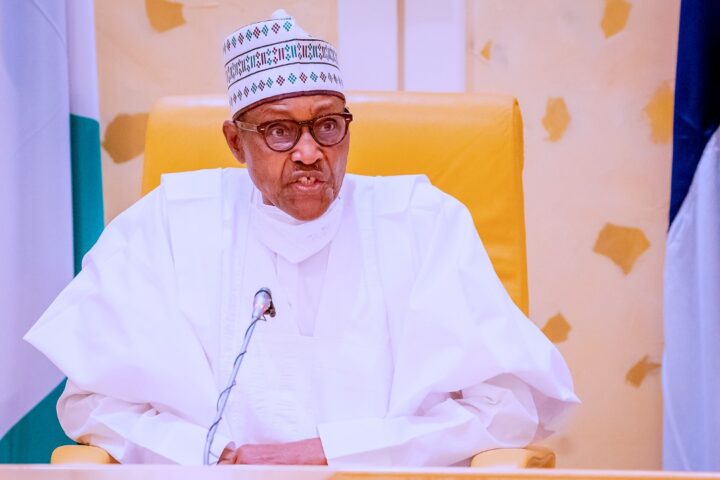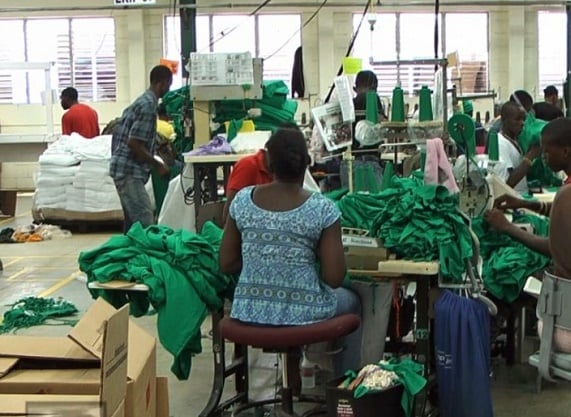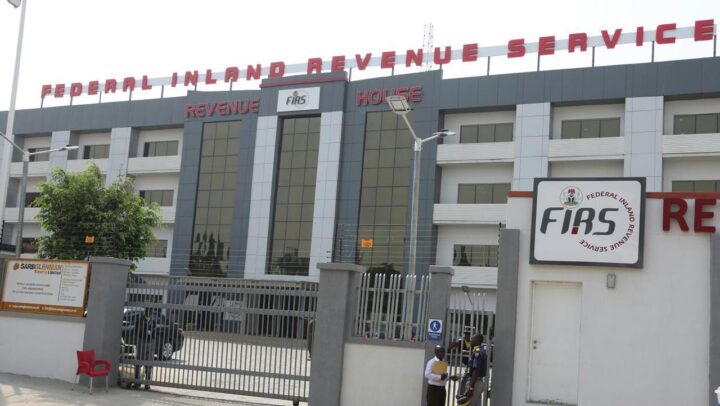It is no longer news that President Muhammadu Buhari has signed the Petroleum Industry jBill into law, bringing to a close, the nearly 2-decade old clamour for a sound legal, fiscal, and regulatory framework to govern the business activities of the Nigerian petroleum industry.
Christened “Petroleum Industry Act (PIA) 2021”, the enactment (apart from other salient provisions), also allotted host communities some 3 percent (from expenditures undertaken by oil and gas prospecting companies); a decision that has drawn the opprobrium of Pan-Niger Delta Forum (PANDEF) and other stakeholders who hold that the provision is minuscule, given the direct economic hardship, poverty and neglect, oil activities over the years, have visited on their people.
It remains to be seen if President Buhari’s further appeal to the host communities to accept the 3 percent allocation will ring true, and gain traction with the stakeholders in the days and weeks ahead.
The PIA has been long in coming. According to the President, its non-passage over the years “…. stagnated the growth of the industry and prosperity of our economy. In the last ten years, Nigeria has lost the estimated US $50 billion worth of investments due to the uncertainty created by the non-passage of the PIB…” He also said the Act will attract the necessary investment in the petroleum sector, adding that employment, increased revenue and the development of other critical sectors of the economy now remain quite feasible.
Advertisement
As much as the PIA is largely welcomed by industry watchers and other stakeholders, the fate of the 3 Agencies involved in getting petrol to the final consumers is still shrouded somewhat. Perhaps this was the reason a national daily (not Thisday), reported the day after the President appended his signature to the PIA, that 2 of them and the Nigerian National Petroleum Corporation (NNPC) were to be “scrapped”.
Even though the Agencies namely, Petroleum Equalisation Fund (Management) Board, Department of Petroleum Resources (DPR), and Petroleum Products Pricing Regulatory Agency(PPPRA) would now be under the supervision of the Nigerian Midstream and Downstream Petroleum Regulatory Authority (referred to as “The Authority”) under the Act, there is nothing in the bill that suggested they would be scrapped. Only the NNPC was specifically indicated, would transmute into a new enterprise, to be named ” Nigerian National Petroleum Company Ltd”.
Be that as it may, the new superintendent of the 3 Agencies involved in fuel matters -The Authority- needs to ensure that the relative tranquillity being enjoyed in the petrol supply currently, nationwide is not jeopardised in any way.
Advertisement
We are very much aware that constant and hitch-free petrol supply makes the wheel of our economy go round, especially if we factor in, the daily activities of transporters, barbers/hairdressers, tailors/seamstresses, eateries, vulcanisers and a host of other small scale business owners, who all, but rely on petrol to power their generators due to inadequate or absence of electricity supply from the Power Companies.
To be sure, The Authority’s objectives include(but are not limited to the following):
*regulation of midstream/downstream operations including technical, operational and commercial activities.
*promoting the supply and distribution of natural gas and petroleum products and the security of natural gas supply for the domestic market.
Advertisement
*ensuring safe, efficient, effective and seamless development of infrastructure for the sector.
*implementation of sound policies for the petroleum operations under its sphere of influence, in line with the provisions of the Act and as directed by the Minister of Petroleum Resources.
* ensuring the supply of crude to refineries domiciled in Nigeria
*make certain that the technical standards, practices and codes governing midstream/downstream operations are in line with international best practices
Advertisement
*developing and ensuring compliance with tariff/pricing it deems fair for all stakeholders and other provisions as spelt out in the Act.
However, going forward, it behoves the Authority to leverage on the strengths of the individual agencies under its supervision for superior delivery/performance. DPR could step up its cooperation and work with the Nigeria Ports Authority (NPA) and Nigerian Maritime Administration and Safety Agency, in keeping the activities of the smuggling rings of crude and petrol at bay. Nigeria is losing colossal amounts daily due to crude and petrol theft.
Advertisement
Also, PPPRA should concentrate on its expertise in working its templates to ensure that the prices at which petrol is being sourced and sold, are fair to all parties.
Two months ago, the Managing Director of the Nigerian National Petroleum Corporation (NNPC), Mr Mele Kyari, raised an alarm that the daily consumption of petrol has reached some 103 million litres! This took industry observers and other stakeholders by surprise.
Advertisement
Recently, the Minister tried to walk back that assertion by the MD. He described it as the 103 million litres/day recorded in May as “flash”. Hear him, as quoted by Thisday Newspaper of August 18th, 2021. “But of course, you know we have flashes. Sometimes, we have these flashes. The daily consumption was about 66 million litres per month when we came in, and we were able to bring it down to 52 million. That’s the average..”
He went on “…but once in a while, you have that flash and it goes up, maybe because of the activities of smugglers. Well, these are not ideal situations, you cannot readily use that as the measure of average consumption… You can’t discount these flashes that you have, which you cannot really judge us on”.
Advertisement
If indeed, these flashes do occur now and then, it therefore means every effort should be made to nip this upsurge or “flashes” largely ascribed to the nefarious activities of smugglers. It is no doubt a huge drain on the Nigerian economy, tottering as it is.
Facts and real-time adequate data on the daily consumption of petrol should be a sine qua non of petrol supply and distribution processes, nationwide.
DAFMIS to the rescue
From the Minister’s postulation, The Authority has its job cut out. It must get all facts and information on petrol consumption patterns from the get-go and in real-time.
Of the 3 Agencies identified earlier (PEF (M)B), DPR and PPPRA, the ones with the most robust automation processes that cover every gamut of petrol supply and distribution are PEF(M)B, according to industry watchers. This is where The Authority should lean on for on the spot information on petrol movements all across the country.
In May 2016, PEF(M)B started developing, in collaboration with the National Information Technology Development Agency(NITDA), the “Downstream Automated Fuel Management Information System” (DAFMIS); primed to ensuring real-time monitoring and data processing of petrol movement(s) in Nigeria, to the last mile.
DAFMIS, a further improvement on ‘Aquila'(the first automation process embarked upon by the Agency), was endorsed by the Ministry of Petroleum Resources and approved by the Federal Executive Council in May 2019 for a 3-year trial. Today, the system working perfectly for all operational processes for PEF(M) B, and is being acclaimed by industry experts, as the most all-encompassing, in delivering information on petrol distribution and its operational processes in Nigeria.
Some of DAFMIS features include, but not limited to:
*Provision of an electronic eye (sensor network) that spawns real-time information in depots and fuel trucks (including their compartments). Massive retrofitting of petrol tankers were embarked upon nationwide to ensure the success of the scheme. For instance, a truck laden with 33,000 litres of petrol with 11,000 litres in each of its 3 compartments, is monitored by the electronic eye, and if in the course of the journey, the driver decided to offload part of the product somewhere before getting to it’s destination, he/she would be caught out. Besides that, the movements of trucks are also monitored effectively and it is easy to locate their positions at any given time.
Arrangements are on to extend the processes to cover vessels, pipelines and filling stations. It is an ingenious system that guarantees the tracking of products everywhere and on the go.
* Ability to cut waste, improve efficiency and identify loopholes in the petrol distribution chain.
*Business Improvement; poised to upgrade the work processes between departments as well as on-field operations for overall efficiency.
*Business Applications; designed to manage petrol marketers claims and reconciliations much more accurately
*Document Management System; billed for digitising and archiving documents in all departments and across all stations nationwide. It also makes for an enhanced offsite backup mechanism that guarantees document security.
PEF(M)B has also upgraded its Data Centre in Abuja, and also built a backup Centre in Lagos towards ensuring that information safety is guaranteed at all times.
In addition, its Operations and Command Centre (OCC) is up and running. This ensures that field operations are monitored 24 hours and round the clock; day in, day out. In effect, untoward incidents can be dealt with in real-time. OCC promotes enhanced visibility of operations within the system and its processes are modelled after that of Aramco, the highly regarded Saudi Arabian oil company.
The Authority will also find The Automation System useful when it appoints domestic Gas Aggregator” for the sole purpose of promoting the use of gas in relevant sectors within the polity. The Act empowers The Authority to “…implement a natural gas management model through which the demand and supply of natural gas for use in the strategic sectors shall be monitored”. This means an independent source of information on all the processes on gas production, supply and distribution are available and on-demand apart from data presented to The Authority by The Gas Aggregator. This is a win ultimately for Nigeria as incidence(s) of sharp practices can be minimised considerably.
DAFMIS which runs in line with global best practices supports the making of critical and on-time decisions in the downstream sub-sector of the petroleum industry and can furnish information to sister Agencies such as DPR and PPPRA, in working their templates.
Other bodies such as the Nigerian Customs Service (NCS), Nigeria Immigration Service (NIS), and some of the nation’s economic planners in the mould of the Central Bank of Nigeria (CBN), National Bureau of Statistics (NBS) to mention a few, can also be supplied with requisite data on petrol movements.
DAFMIS will no doubt serve as a willing tool to PIA. The Authority, oil industry and the nation at large, will no doubt, reap bountifully from its full deployment, covering every sphere of petrol business supply, distribution, monitoring and operational processes, all in one fell swoop.
Olakunri, a director of Oats Global Energy and public sector analyst, writes from Abuja.
Email: [email protected]
Views expressed by contributors are strictly personal and not of TheCable.
1 comments








This interesting article is an attempt at providing ‘legitimacy’ for a parastatal whose usefulness has been debatable since its inception, and its relevance has aggressively trended downwards since 2020.
If not for the sake of some level of decency and comportment, one might have said that this is a paid service for the writer, who has been on drumming up support for the relevance of PEF(M)B since last year through other articles and interviews. The addition of DPR & PPPRA into the article is a weak attempt to birth and drag ‘co-travellers’ into a terminal position that PEF(M)B is in right now. For the avoidance of doubt, the duties of PPPRA have been subsumed into that of the Midstream and Downstream Petroleum Regulatory Authority, while DPR will actually be split into the Nigerian Upstream Regulatory Commission and the Midstream and Downstream Petroleum Regulatory Authority. This makes any effort to lump them with PEF(M)B as either uninformed or an attempt to befuddle those who are not in the know.
While there were lofty expectations tied to the establishment of PEF(M)B, it has turned out to be a pipedream, which has degraded well beyond its half-life. Outside areas like South West, and parts of the South-South, which have some level of proximity to tank farms, alongside Abuja and some state capitals, practically all other areas in the country sell fuel above the so-called set rate. Well over 50% of the country buy fuel at higher price levels, this is an open secret to everyone working in the downstream sector, and others who care to know. This makes it clear that the efforts of PEF(M)B more or less failed since ‘day 1’. That ministers and presidents have turned a blind eye to this is another matter. They have a beautiful office in Abuja by the way.
My greatest anger, revulsion, and perhaps disappointment about the article are the claims contained within it, which are either half-truths or outright misplacement of the real facts. While I am aware that there has been some ‘approvals’ for Project Aquila 2 and DAFMIS, what has followed has been a combination of funds not released as needed and terrible execution from PEF(M)B and nominated partners. Let me quickly deal with two vexing claims in the article.
1. The claim that there are sensors on the cargo compartments of tankers is so far from the truth. Aside from the huge costs needed to deploy, it will require focused change management and reorientation of the drivers, and will involve some upgrades and replacements of some tanker trucks. Who is going to pay? The GIT loss issues is enough headaches for fuel network operators.
2. The claim that there exists a robust automation system in all depots, which communicates with a platform owned/operated by PEF(M)B is patently not true. I know this because I have been to a host of depots owned by MOMAN and DAPMAN members, all around Nigeria, since getting into this industry in 2013. I know there has been several efforts and tenders towards deploying tank and terminal automation systems in the almost 150 depots nationwide, but the sore sticking thumb has been the question, “who will pay?”. Government cannot make that investment, neither can they forcefully mandate operators to deploy, it has to be their business decision! Nevertheless, I am convinced that PEF(M)B has a platform/portal in which manual inputs are uploaded. This is definitely of questionable use, as there are bound to be errors, while the data sets for a particular day may take more than 2 weeks to be complete across board.
The dilemma of monitoring depots all across Nigeria would be moot with full deregulation of the downstream sector. In the deregulated regime, which will be sooner, rather than later, it will be ridiculous to expect prices in Lagos and Kaduna to be the same. This makes it clear that PEF(M)B has no role to play in this new dispensation, beyond adding unjustified and poorly utilized layers of pork into our PMS pricing template. PEF(M)B has for so long tried to justify its existence, the PIA has put an end to that existence!